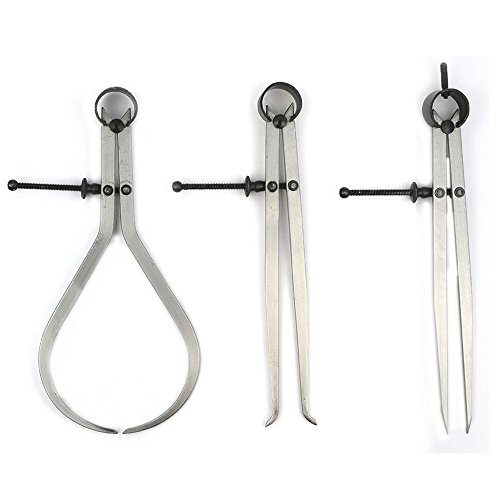Tried both Uno and Mega...currently Mega Connected, Nema 23 425 oz/in , Sutia M542 driver - 48 volt in, A+-red, A- Blue, B+ - green, B- black, Pul- bridged to Dir - bridged to Gnd
Pul+ to Pin 12, Dir+ to Pin13.....no Enable connection.
I have checked everything numerous times, I have looked at code and to me it looks ok...nothing jumps out at me...but really I haven't a clue,tho I wonder why Cons Int is used and others seem to use Pinmode....just an observation trying to get this sorted.
LCD and Keypad working great.
/*
4x4 matrix keypad amd a 20 x 4 LCD.
Edit StepsPerRotation & TableRatio(# of turns for 360 degrees)in line 29
M542 driver
5/2/2015
*/
#include <Wire.h>
#include <LiquidCrystal_I2C.h>
#include <Keypad.h>
const byte ROWS = 4;
const byte COLS = 4;
char keys[ROWS][COLS] = {
{'1','2','3','A'},
{'4','5','6','B'},
{'7','8','9','C'},
{'*','0','#','D'}
};
byte rowPINS[ROWS] = {11,10,9,8};
byte colPINS[COLS] = {7,6,5,4};
Keypad kpd = Keypad(makeKeymap(keys),rowPINS,colPINS, ROWS, COLS);
LiquidCrystal_I2C lcd(0x3F, 2, 1, 0, 4, 5, 6, 7, 3, POSITIVE);// set the LCD address to 0x3F for a 20 chars and 4 line display
// SCL - 21, SDA - 20, VCC - +5, Gnd - Gnd
//setup vars
const int stp = 12; // connect pin 12 to step
const int dir = 13; // connect pin 13 to dir
const int StepsPerRotation = 400; // Set Steps per rotation of stepper NOTE the driver is set to Half step
const int TableRatio = 90; // ratio of rotary table
const int Multiplier = (StepsPerRotation * TableRatio)/360; // 200*90=18000/360 = 50
const int stepdelay = 1;
float Degrees = 0; // Degrees from Serial input
float ToMove = 0; // Steps to move
float bob = 0;
int cho = 0;
void setup()
{
lcd.begin(20,4); // initialize the lcd
pinMode(stp, OUTPUT);
pinMode(dir, OUTPUT);
// Print welcome message to the LCD.
lcd.backlight();
lcd.print("Rotary Table Control");
lcd.setCursor(4,2);
lcd.print(" ");
lcd.setCursor(3,3);
lcd.print("updated 2016");
delay(2000);
cho = 0;
char key = kpd.getKey();
lcd.print("Enter Selection:");
lcd.setCursor(0,1);
lcd.print("Degrees = A");
lcd.setCursor(0,2);
lcd.print("Divisions = B");
lcd.setCursor(0,3);
lcd.print("JOG = C");
while(cho == 0)
{
key = kpd.getKey();
switch (key)
{
case NO_KEY:
break;
case 'A':
Degrees=getdegrees();
lcd.clear();
cho = 1;
break;
case 'B':
Degrees=getdivisions();
cho=2;
break;
case 'C':
Degrees=getjog();
lcd.clear();
cho=3;
break;
} // end case
} // end while cho=0
} // end setup
void loop() // MAIN LOOP
{
lcd.clear();
char key = kpd.getKey();
bob = 0;
lcd.setCursor(7,0);lcd.print("Total: ");lcd.print(bob,2); // total steps
lcd.setCursor(0,3);lcd.print("FOR=A REV=B X=C");
while(key != 'C') // C will return to start menu
{
lcd.setCursor(0,0);lcd.print(abs(Degrees),2);lcd.print((char)223);
key = kpd.getKey();
if(key == 'A') // FORWARD
{
void setup()
{
lcd.begin(20,4); // initialize the lcd
pinMode(stp, OUTPUT);
pinMode(dir, OUTPUT);
float getjog()
{
float Degrees = 0;
float num = 0.00;
char key = kpd.getKey();
lcd.clear();
lcd.setCursor(6,0);lcd.print("Jogging");
lcd.setCursor(0,1);lcd.print("A=1 B=10 C=100 Steps");
lcd.setCursor(0,2);lcd.print("Enter Degrees:");lcd.setCursor(0,3);lcd.print("OK = # ");lcd.print((char)60);lcd.print((char)45);lcd.print(" D");
while(key != '#')
{
switch (key)
{
case NO_KEY:
break;
case 'A':
Degrees = 1;
lcd.setCursor(14,2);lcd.print(Degrees);
break;
case 'B':
Degrees = 10;
lcd.setCursor(14,2);lcd.print(Degrees);
break;
case 'C':
Degrees = 100;
lcd.setCursor(14,2);lcd.print(Degrees);
break;
case 'D':
num=0.00;
lcd.setCursor(14,2);lcd.print(" ");
lcd.setCursor(14,2);
break;
}
key = kpd.getKey();
}
return Degrees;
}
float getdivisions()
{
float Degrees = 0;
float num = 0.00;
char key = kpd.getKey();
lcd.clear();
lcd.setCursor(0,1);lcd.print("Enter Division:");lcd.setCursor(0,3);lcd.print("OK = # ");lcd.print((char)60);lcd.print((char)45);lcd.print(" D");
lcd.setCursor(16,1);
while(key != '#')
{
switch (key)
{
case NO_KEY:
break;
case '0': case '1': case '2': case '3': case '4':
case '5': case '6': case '7': case '8': case '9':
num = num * 10 + (key - '0');
lcd.print(key);
break;
case 'D':
num=0.00;
lcd.setCursor(16,1);lcd.print(" ");
lcd.setCursor(16,1);
break;
}
Degrees = 360/num;
key = kpd.getKey();
}
return Degrees; //num;
}
float getdegrees()
{
//int key = 0;
float num = 0.00;
float decimal = 0.00;
float decnum = 0.00;
int counter = 0;
lcd.clear();
//lcd.init();
char key = kpd.getKey();
lcd.setCursor(0,1);lcd.print("Enter Degrees:");lcd.setCursor(0,3);lcd.print("OK = # ");lcd.print((char)60);lcd.print((char)45);lcd.print(" D");
lcd.setCursor(15,1);
bool decOffset = false;
while(key != '#')
{
switch (key)
{
case NO_KEY:
break;
case '.':
if(!decOffset)
{
decOffset = true;
}
lcd.print(key);
break;
case 'D':
num=0.00;
lcd.setCursor(15,1);lcd.print(" ");
lcd.setCursor(15,1);
break;
case '0': case '1': case '2': case '3': case '4':
case '5': case '6': case '7': case '8': case '9':
if(!decOffset)
{
num = num * 10 + (key - '0');
lcd.print(key);
}
else if((decOffset) && (counter <= 1))
{
num = num * 10 + (key - '0');
lcd.print(key);
counter++;
}
break;
} //end case
decnum = num / pow(10, counter);
key = kpd.getKey();
} //end while not #
return decnum;
} // end getdegrees
void printadvance() // print function
{
lcd.setCursor(6,1);lcd.print("Moving");
lcd.setCursor(4,2);lcd.print("Steps ");lcd.print(ToMove,0);
lcd.setCursor(13,0);lcd.print(bob,2);
rotation(ToMove,0);
lcd.setCursor(6,1);lcd.print(" ");
}
void rotation(float tm, int d)
{
for(int i = 0; i < tm; i++)
{
digitalWrite(stp, HIGH);
delay(stepdelay);
digitalWrite(stp, LOW);
delay(stepdelay);
}
}
void software_Reset() // Restarts program from beginning but does not reset the peripherals and registers
{
asm volatile (" jmp 0");
}
Cheers


























![DreamPlan Home Design and Landscaping Software Free for Windows [PC Download]](https://m.media-amazon.com/images/I/51kvZH2dVLL._SL500_.jpg)







![Learning AutoCAD Civil 3D 2014 [Online Code]](https://m.media-amazon.com/images/I/51F3yi9fokL._SL500_.jpg)








![MeshMagic 3D Free 3D Modeling Software [Download]](https://m.media-amazon.com/images/I/B1U+p8ewjGS._SL500_.png)




![Learning Revit MEP 2014 [Online Code]](https://m.media-amazon.com/images/I/61vjG-sEuQL._SL500_.jpg)

















